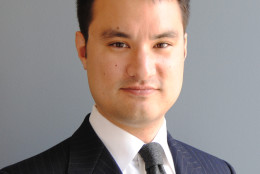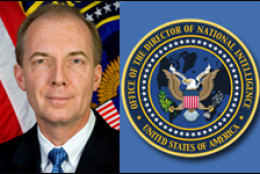Intelligence Community
-
Greg Smithberger, the NSA chief information officer, said the Intelligence Community IT Enterprise (ICITE) program is taking some of the concepts of the commercial cloud and applying special cybersecurity technologies on top.
October 23, 2015 -
Responding to cyber penetrations into federal IT systems at the Office of Personnel Management and elsewhere, the Office of the Director of National Intelligence said Wednesday that it was launching a “comprehensive” and governmentwide counterintelligence campaign.
September 10, 2015 The National Intelligence Director said he’s working through the fiscal 2017 budget request to limit or reverse the impacts of budget uncertainty on the IC workforce.
September 09, 2015The intelligence community and private industry are pooling their efforts to fight rising threats to national cybersecurity.
August 26, 2015-
The Intelligence Community wasn't thrilled when The New York Times published the names of three senior undercover CIA officers in an article back in April. The Times said it made its decision because the CIA officers hold leadership roles in "a significant paramilitary program." Aki Peritz is vice president of the Center for Intelligence Policy and a former counterterrorism analyst for the CIA. He tells In Depth with Francis Rose, the media and the IC need to communicate and sometimes compromise with each other.
August 21, 2015 -
Al Tarasiuk, the intelligence community's chief information officer, said the Intelligence Community IT Enterprise (ICITE) program is less about technology and more about getting widespread buy-in from the analysts and collectors.
March 26, 2015 -
The CIA director said the agency is following the spy business into the digital realm, but it is not trying to step on other intelligence agencies' turf.
March 16, 2015 -
President Barack Obama focused little on improving government management in his annual speech to Congress. Obama called on Congress to pass cyber legislation and said the administration will release a new report on surveillance and privacy safeguards.
January 21, 2015 -
Jill Singer, partner at Deep Water Point and former CIO of the National Reconnaissance Office, sits down with Women of Washington radio show hosts Aileen Black and Gigi Schumm, for a discussion about cloud computing and insider threats.
December 24, 2014 -
Chief legal counselor to NSA says intelligence disclosures may have set back efforts to improve nation's cybersecurity posture because of increasing unease about public-private cooperation, and that it's time to reexamine the digital privacy trust relationship between government and the public.
July 28, 2014 -
It's hard to tell how many agencies are actually checking all the boxes on the Obama administration's plan for detecting disgruntled or rogue employees. Agencies were supposed to have taken initial steps to set up insider threat programs by June 30, according to an update posted on Performance.gov. But it's impossible to know the number of agencies who met the initial criteria so far. The progress update says that information is classified.
July 18, 2014 -
The nation's top intelligence official says transparency is going to have to be a feature of the intelligence community from now on. Gen. James Clapper, the director of national intelligence says that's his main takeaway from the Edward Snowden leaks and their continuing fallout. Clapper is the guest on the latest edition of AFCEA Answers on Federal News Radio. In this excerpt, he told host Max Cacas he makes no apologies for the programs Snowden exposed, but intelligence agencies need to do a better job of explaining why they do what they do.
July 17, 2014 -
Last week, President Obama signed the annual authorization bill for the U.S. Intelligence Community, making several changes to the way federal agencies and contractors deal with classified information and IT systems. Several of the provisions appear to be a reaction to the security clearance issues raised by the Edward Snowden case and by the Navy Yard shooting. Pamela Walker is senior director for homeland security at the Information Technology Alliance for Public Sector. She's been analyzing the final bill, and joined In Depth with guest host Jared Serbu to talk about some of the provisions.
July 17, 2014 -
Jill Singer, partner at Deep Water Point and former CIO of the National Reconnaissance Office, sits down with Women of Washington radio show hosts Aileen Black and Gigi Schumm, for a discussion about cloud computing and insider threats.
June 25, 2014 -
Perhaps nowhere in the federal workforce is trust more frail than in the intelligence community. It is still reeling from the revelations of former NSA contractor Edward Snowden. The Director of National Intelligence recently issued two policies to clamp down on employees' speech. The first says only a few authorized officials can talk with journalists. In this week's Legal Loop, Tom and Emily looked at the policy's impact on trust in the intelligence community as part of our special report, Trust Redefined: Reconnecting Government and Its Employees. Employment lawyer Debra Roth said on The Federal Drive the new policy stands out because it covers unclassified information.
May 22, 2014







